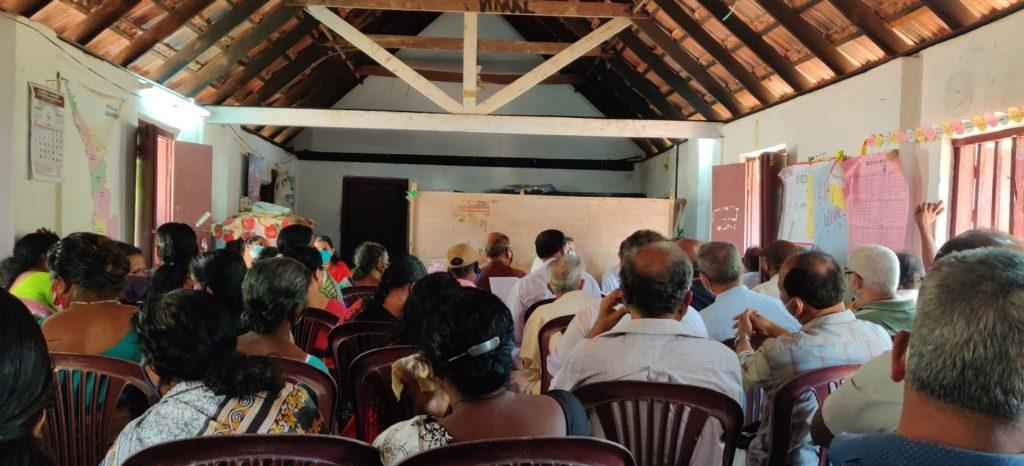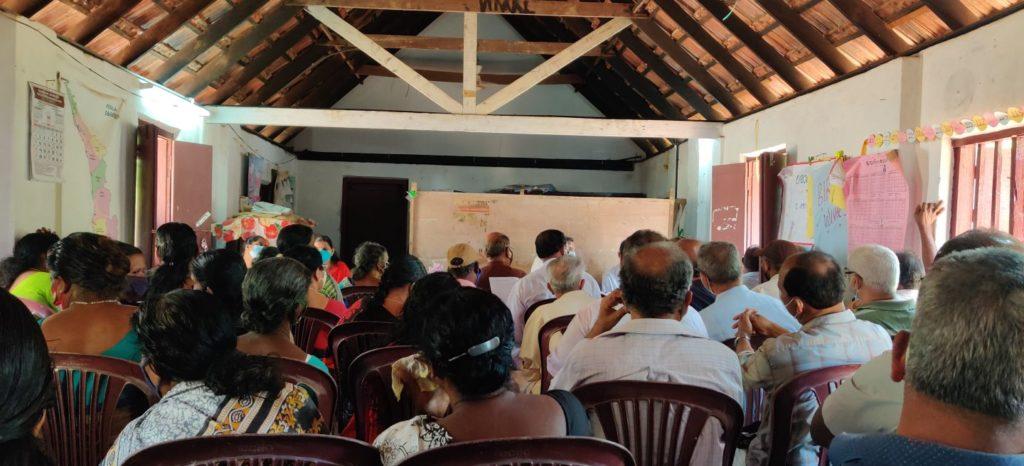
The success of Kerala’s Health Care System is often – at least to some extent – attributed to the democratic decentralization model the state adopted in 1996, namely, the People’s Planning Campaign. While health indicators of Kerala are considered on par with countries of the Global North, lately the state has been witnessing a stagnation in the improvement of health indicators owing to a weak public healthcare system and burgeoning private health sector. In addition, the state also faces an increasing burden of noncommunicable diseases, partly due to an aging population. In response, in 2017 the state decided to revamp its public healthcare system by introducing the Comprehensive Primary Health Care (CPHC) policy, with community participation as a key focus.
Against this backdrop, as part of our doctoral research, we attempted to explore the meanings attributed to ‘community participation’ within the formal policy as well as narratives of the actors within the healthcare system. While the policy envisages comprehensive primary healthcare through a democratic and participatory approach, the reality on the ground appears counterintuitive. Actors in the healthcare system consider the provisioning of primary health care more as a technical exercise, and decision-making thus as the exclusive realm of ‘experts’. The same concern was flagged by the WHO in a (2018) document titled A Vision for Primary Health Care in the 21st Century, that laid the foundation for the Astana Declaration.
By way of example, a telling quote from our research, just to provide you with a flavour:
“In the case of developing novel primary health care initiatives, when we look from a district or state level, we need to identify the areas where there is a scope for it… Any initiative has to be supported from the top level through tips and suggestions so that it could be converted to good projects at the level of panchayats. I don’t think communities can do much within planning…uhm…I think those are activities that will always have much more technical aspects”
(a senior health official from the state)
Framing primary health care as a largely technical endeavor implies that communities are either mere ‘beneficiaries’ of health projects or ‘resources’ that can at best support the initiatives conceived by the ‘expert’. Arguably, the CPHC policy attempts to overcome this by conceiving community structures like ‘Arogyasena’ (health volunteers) as a partner in priority setting and planning. However, the health system functionaries’ idea of ‘partnership’ only sees communities as ‘human resources’, playing a supporting role in the implementation of health projects conceived by ‘experts’. The framing of the community as ‘resources’ is further extended to existing decentralized structures like the Local Self-Governments (LSGs) which are expected to facilitate the successful ‘implementation’ of health projects conceived by ‘experts’.
Another idea that emerged from narratives is of communities ‘taking responsibility for their health’. As ‘good’ citizens’ they shall avoid negative behaviors and effectively manage their lifestyle. Such narratives reconfigure the idea of community participation as being “responsible citizens” who make “good” lifestyle choices. Although numerous studies have demonstrated that lifestyles are shaped by the structural distribution of chances and resources among social groups, through such narratives poor decisions are ultimately construed as the deliberate choice of people who may be ‘irresponsible’. Such notion of ‘responsible citizens’ serves to facilitate shifting state responsibilities to individuals, thereby reducing the burden on state health care expenditure. This strategy is then lauded as ‘reforms’ within the public healthcare system.
The lingering technocratic perspective within the healthcare system in Kerala undervalues experiences and learnings that communities can bring to the table to help overcome local long standing health challenges. Ideally, primary health care demands leveraging the trust and partnership of communities. L imiting the roles of communities (along the lines explained above) is not just contrary to this ideal, it can also further widen the trust deficit between communities and the healthcare system. However, while things currently look different, we believe that the answer to this conundrum might also be found in Kerala’s long history of democratic decentralization and informed citizenry. While we need possible strategies to bridge this expert-lay divide within the primary healthcare discourse, initiatives to strengthen trust between communities and experts are the way forward.

Gram Sabha meeting in Kerala